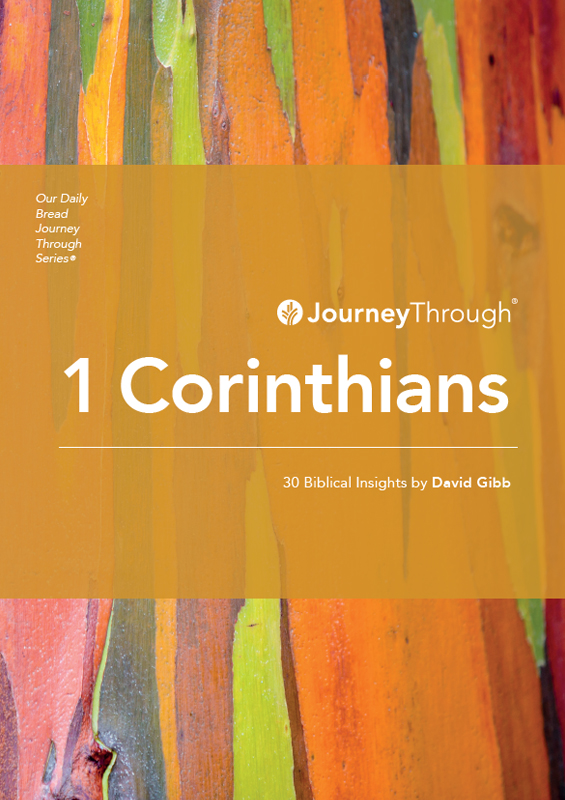1 Corinthians
by David Gibb
The city of Corinth was famous for its trade, wealth, and sex industry. The apostle Paul had arrived there most probably in 50 A.D. and preached the good news of Jesus Christ, which resulted in the birth of its first church (see Acts 18:1–18). Paul had stayed in Corinth for 18 months before moving on. Now, some three years later, he writes a letter to the church. It has since grown in size—but that growth has come with problems.
There were big divisions and all kinds of immorality within the church. People were taking each other to court, getting drunk at services, leaving their spouses, and worshipping idols. There were some who had dramatic spiritual gifts but looked down on those who didn’t have them. There were even some who doubted the resurrection!
The trouble is, the Corinthians did not see all these as problems! They believed that they still had great spiritual insight, so Paul has to bluntly tell them: “You are still worldly” (1 Corinthians 3:3).
They also believed that they had succeeded in life, and had thus developed a sense of superiority. So, with deep irony, Paul writes: “Already you have all you want! Already you have become rich! You have begun to reign—and that without us!” (4:8).
And, the Corinthians thought they knew a thing or two. So, once again, Paul has to remind them: “Knowledge puffs up while love builds up” (8:1). In fact, while the Corinthians claimed to have spiritual wisdom and gifts, they were in danger of losing love. And if that happened, Paul says, they would have nothing (13:1–3).
Paul’s letter to the Corinthians pulls no punches. It is written to immature Christians, urging them to grow up and to be what God has called them to be—holy. As we will discover, the key to real spiritual growth is keeping Jesus’ death on the cross at the heart of who we are and what we hold dear.
The Structure of 1 Corinthians
To the church of God in Corinth, to those sanctified in Christ Jesus and called to be his holy people.-1 Corinthians 1:2





